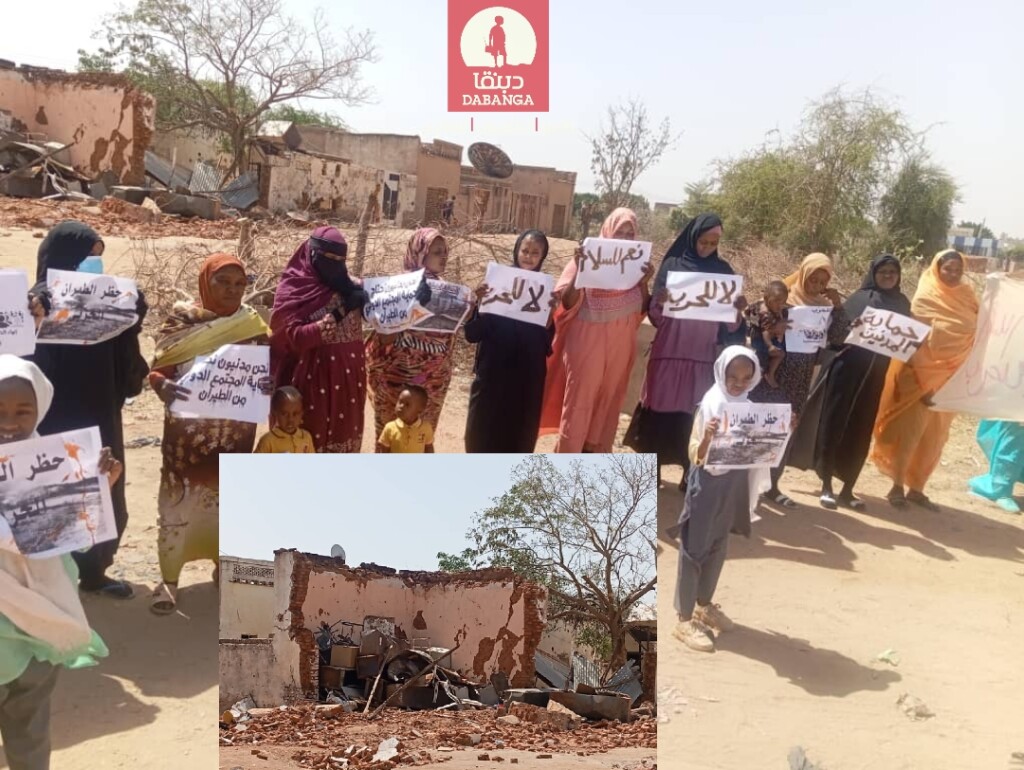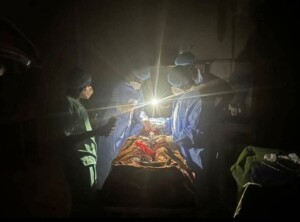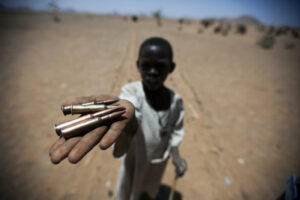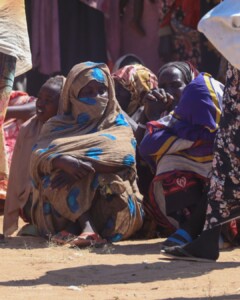Sudanese women protest in Darfur amid 16-day GBV campaign

A women's protest in Nyala, the capital of South Darfur, yesterday, to demand that the Sudanese army stop attacking civilians in Darfur (Photo: RD)
The Darfur Women’s Forum staged a protest yesterday in Nyala, the capital of South Darfur, to urge the warring parties in Sudan to cease hostilities and end violations against women.
The protest coincided with the launch of a global 16-day campaign to combat gender-based violence (GBV).
Sayeda Yagoub, a journalist and member of the forum, said yesterday that “war crimes against women in Sudan have reached the level of murder, rape, kidnapping, and psychological terrorism. This demands urgent and serious intervention from the international community to stop the war, which has exacted a heavy toll on women.”
Yagoub emphasised that the conflict has stripped women of security and shelter, “leaving them displaced and in refugee camps, where their suffering continues unabated”.
“As one of Sudan’s leading civil society organisations opposing the war, the Darfur Women’s Forum remains committed to advocating for victims, particularly women and children. It continues to amplify their voices and press for a swift resolution to the conflict, which has devastated countless lives and communities.”
‘Bearing the brunt of war’
In an interview with Dabanga, women’s rights activist and journalist Abla Obeid has issued a global appeal for solidarity with Sudanese women as they endure the impact of the ongoing war in Sudan.
Obeid underscored the multifaceted challenges faced by Sudanese women, including restricted access to education, insufficient food and healthcare, and the prevalence of forced and early marriages. “The world has been deeply shaken by the plight of Sudanese women, who are bearing the brunt of the war’s consequences.”
Yesterday, Radio Dabanga reported that displacement, poverty, and the collapse of protective mechanisms have left many in Sudan with no choice but to use their bodies to feed their families.
Obeid urged an immediate end to the conflict, describing it as a necessary step towards justice and respect for women. “We need security, peace, and community safety,” she told Radio Dabanga, adding that a comprehensive strategy is required to address the war’s aftermath. “This should include psychological support alongside measures to rebuild affected communities.”
She concluded her appeal with a resounding message: “No to the oppression of women all over the world.”
Sexual violence
As reported by Radio Dabanga in September, UN human rights experts expressed “their grave concern for the many documented cases of sexual abuse, rape (including gang rape), enforced prostitution, sexual slavery, kidnapping, enforced disappearances, and unlawful killings by the Rapid Support Forces (RSF) and other armed groups”.
Both the Sudanese Army and the RSF have repeatedly denied that there is any structural campaign of GBV. While both belligerents have acknowledged the occurrence of “incidents”, the warring parties insist that these are isolated crimes attributable to “rogue individual elements”.
Consistent testimony from victims on the ground paints an entirely different picture. A recent report by the African Centre for Justice and Peace Studies amply corroborates “a pattern of harmful actions targeting Sudanese people based on gender, with women’s organisations documenting over 120 verified cases of rape as of October 2023, and fears that the actual number may be higher.”











 and then
and then